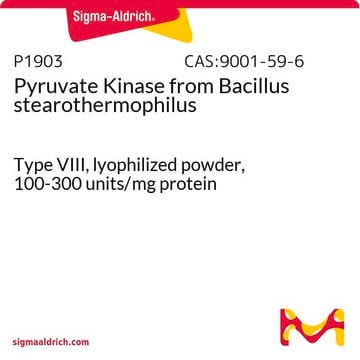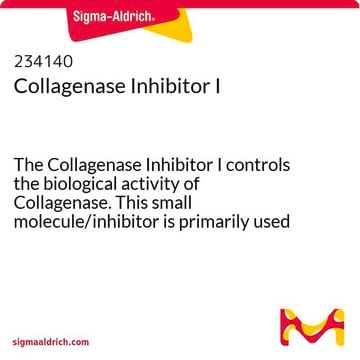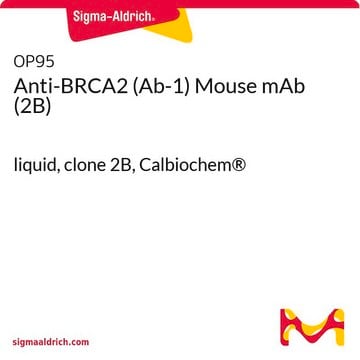SRP6054
ProNGF human
recombinant, expressed in E. coli, ≥95% (SDS-PAGE), ≥95% (HPLC)
Synonyme(s) :
Beta-NGF, Beta-nerve growth factor
Se connecterpour consulter vos tarifs contractuels et ceux de votre entreprise/organisme
About This Item
Produits recommandés
Description générale
The nerve growth factor (NGF) gene produces pro-nerve growth factor (proNGF), a soluble 246 amino acid pro-peptide. NGF belongs to the neurotrophin family. NGF gene is located on human chromosome 1p13.2.
Application
ProNGF human has been used as a standard in the de-glycosylation experiment for comparative studies by western blotting.
Actions biochimiques/physiologiques
Pro-nerve growth factor (proNGF) participates in fetal neural development. It promotes neuronal survival and differentiation, or apoptosis, by interacting with particular nerve growth factor (NGF) receptors on neurons. Haploinsufficiency of the nerve growth factor β (NGFB) gene results in sensory neuropathy.
The precursor form of the nerve growth factor (proNGF) like its mature form is characterized by the cystine knot motif consisting of three cystine bridges, whereas proneurotrophins and mature neurotrophins elicit opposite biological effects. ProNGF functions preferentially via the complex of pan-neurotrophin receptor p75 (p75NTR) and vps10p domain-containing receptor sortilin inducing neuronal apoptosis and contributing to age- and disease-related neurodegeneration.
Forme physique
Lyophilized from a 0.2 μm filtered solution of 20 mM PB and 250 mM NaCl, pH 7.2.
Notes préparatoires
Centrifuge the vial prior to opening.
Reconstitution
Dissolve in 1x PBS (It is not recommended to reconstitute to a final concentration less than 100 μg/mL.). This can further be diluted to other aqueous buffers.
Autres remarques
Recombinant human ProNGF produced in E. coli is a non-glycosylated, non-covalently linked homodimer with each polypeptide chain containing 222 amino acids with an extra N-terminal Met and having a molecular mass of 25 kDa. The sequence of the first five N-terminal amino acids was determined and was found to be Met-Glu-Pro-His-Ser.
Code de la classe de stockage
11 - Combustible Solids
Classe de danger pour l'eau (WGK)
WGK 3
Point d'éclair (°F)
Not applicable
Point d'éclair (°C)
Not applicable
Faites votre choix parmi les versions les plus récentes :
Certificats d'analyse (COA)
Lot/Batch Number
Désolés, nous n'avons pas de COA pour ce produit disponible en ligne pour le moment.
Si vous avez besoin d'assistance, veuillez contacter Service Clients
Déjà en possession de ce produit ?
Retrouvez la documentation relative aux produits que vous avez récemment achetés dans la Bibliothèque de documents.
Marzia Soligo et al.
Neurochemistry international, 140, 104812-104812 (2020-08-08)
The precursor of Nerve Growth Factor (proNGF) is the predominant form of NGF in the brain, where its tissue levels are increased in neurodegenerative diseases. proNGF exists in two main splicing variants, the long proNGF-A and the short proNGF-B. We
Gregory J Fitzgibbon et al.
Developmental medicine and child neurology, 51(10), 833-837 (2009-02-03)
Pain insensitivity is mediated at the genetic level by the disruption of specific genes associated with neuronal development. Mammalian in vivo and in vitro studies have shown the nerve growth factor (NGF) gene to play an integral role in nerve
Jie Jiang et al.
Journal of cellular and molecular medicine, 24(10), 5901-5910 (2020-04-16)
Pancreatic cancer (PC) is a continuously high lethal disease, and the tumour microenvironment plays a pivotal role during PC progression. Herein, we focus on that the Nerve growth factor (NGF)/Tropomyosin-related kinase A (TrkA), in pancreatic stellate cells-pancreatic cancer cells (PSCs-PC
Christopher W Rowe et al.
BMC endocrine disorders, 19(1), 128-128 (2019-11-30)
Nerves and neurotrophic growth factors are emerging promoters of cancer growth. The precursor for Nerve Growth Factor (proNGF) is overexpressed in thyroid cancer, but its potential role as a clinical biomarker has not been reported. Here we have examined the
Notre équipe de scientifiques dispose d'une expérience dans tous les secteurs de la recherche, notamment en sciences de la vie, science des matériaux, synthèse chimique, chromatographie, analyse et dans de nombreux autres domaines..
Contacter notre Service technique








